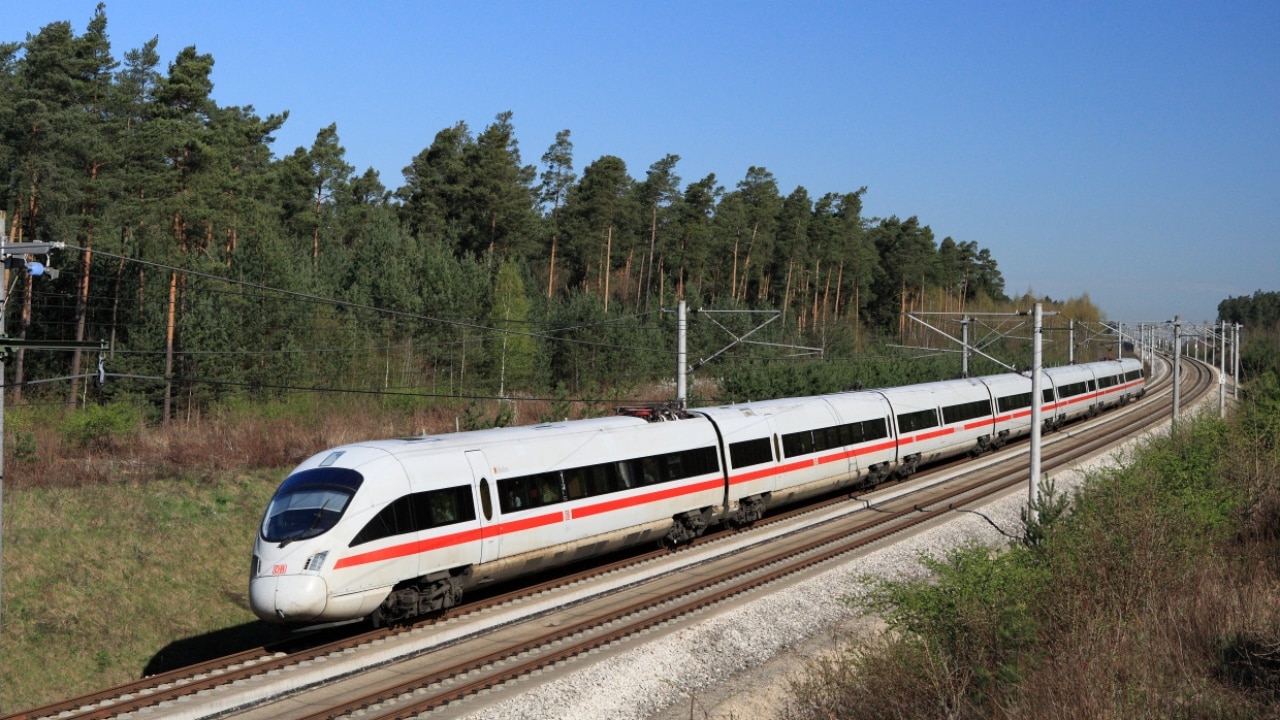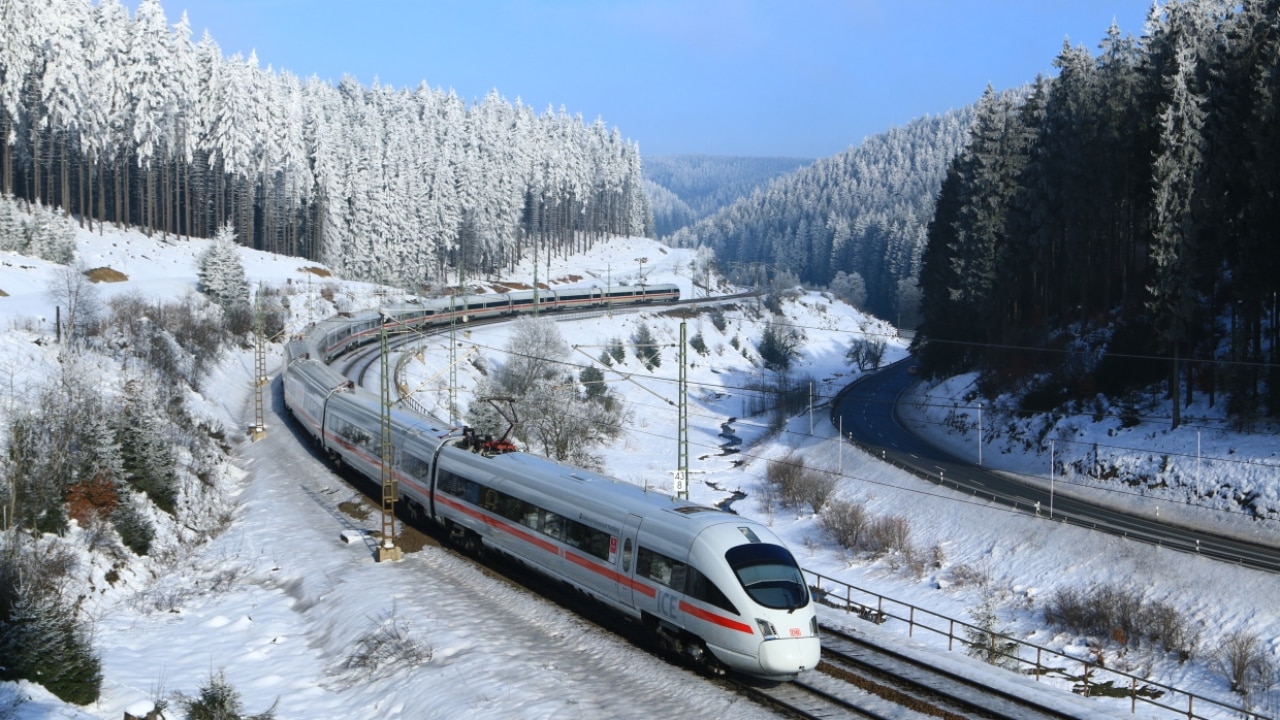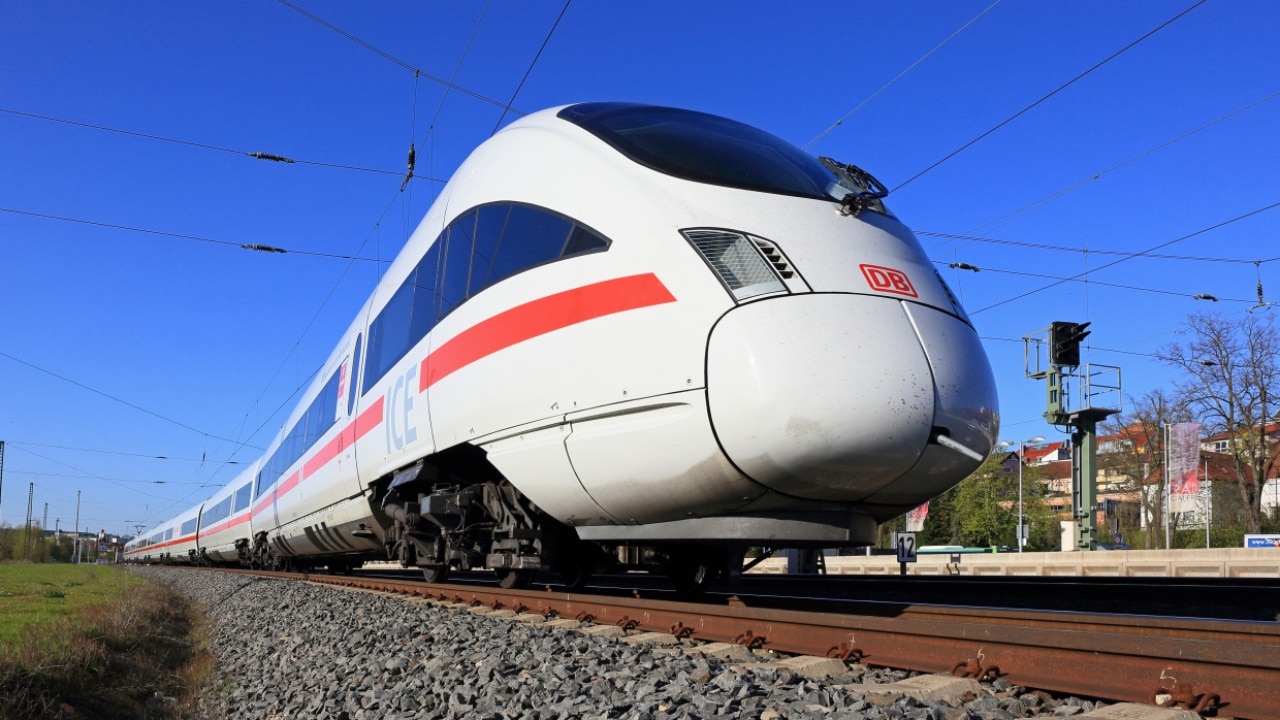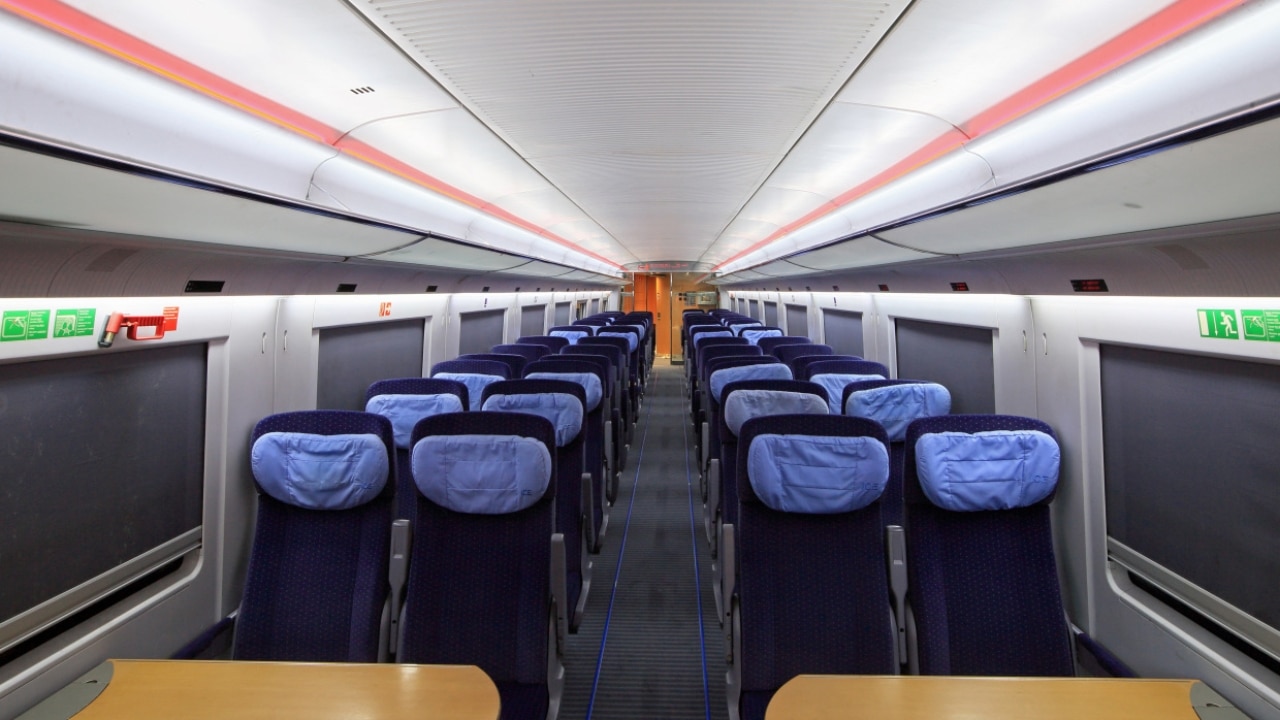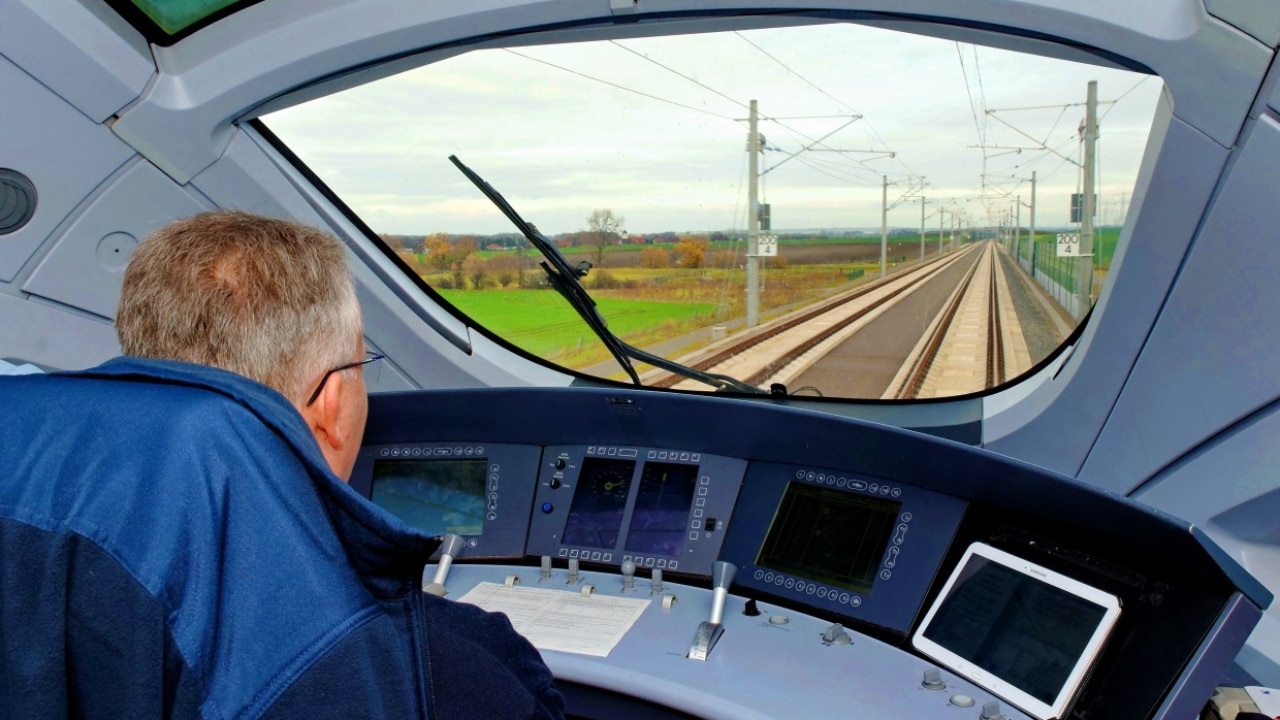The ICE T entered service in 1999. It was designed with special technology that allowed the vehicle body to tilt onto its side in curves like a motorbike. The ICE T is available in two versions as a five and seven-unit train, which can be coupled together and run as a double train. The five-unit class 415 variant includes a bistro car, while the seven-unit class 411 also has a dining area. Each end of the ICE T has a special compartment, separated from the driver by a glass wall, that offers the opportunity to look over the driver's shoulder.
A modernisation programme for the ICE T fleet was launched in December 2013. In addition to a new external coat of paint and new carpets, the ICE T trains were some of the first in Germany to be equipped with the Europe-wide train control system ETCS (European Train Control System). This means that the ICE T fleet can be used on the newly built Halle/Leipzig - Erfurt high-speed line, for example, which saves up to 50 minutes of travel time. The ICE T also runs to Austria, enabling direct services between Frankfurt and Vienna, for example.
Facts, figures and data
Class 411 - first series |
Class 411- second series |
Class 415 |
|
|---|---|---|---|
| Start of operations | 2000 | 2004 | 1999 |
| Number of trains | 31 | 28 | 11 |
| Number of carriages | 5 intermediate cars, 2 end cars | 5 intermediate cars, 2 end cars | 3 intermediate cars, 2 end cars |
| Number of seats | 359 | 376 | 250 |
| Train length | 185 m | 185 m | 133 m |
| Train weight (empty) | 386 t | 386 t | 273 t |
| Maximum speed | 230 km/h | 230 km/h | 230 km/h |
| Auslandseinsatz | -
| - | - |
More details on the ICE T
- Train overview and details of the ICE T for download - five-unit train (in German) (PDF, 467 KB)
- Train overview and details of the ICE T for download - seven-unit train, first series (in German) (PDF, 537 KB)
- Train overview and details of the ICE T for download - seven-unit train, second series (in German) (PDF, 548 KB)

